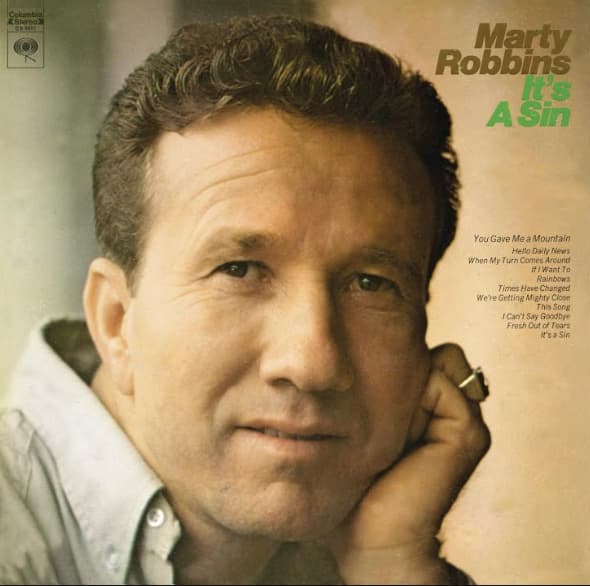
A lament for a simpler past and a lost love, wrapped in the poignant reality that “Times Have Changed.”
There are certain songs that, upon the first few notes, transport you back to a specific time and place. They don’t just evoke a memory; they become the memory itself. For many who came of age in the 1960s, a song like Marty Robbins’s “Times Have Changed” serves as a bittersweet time capsule. Released in 1969 on the album It’s a Sin, this was not one of his blockbuster hits, yet its impact was profound for those who found solace in its melancholy tones. While it didn’t scorch the charts in the way that classics like “El Paso” or “Don’t Worry” did—charting modestly at #12 on the Billboard Hot Country Singles chart—its resonance was measured not in numbers, but in the quiet, heartfelt understanding of its message.
This song is a quintessential Robbins ballad—not a cowboy epic or a tale of a lovesick heart, but a somber reflection on the passage of time and the emotional chasm it creates. The story behind “Times Have Changed” is a familiar, deeply human one. It speaks of a man returning to a place he once knew, a place filled with the ghosts of a past romance. He finds the streets are no longer the same, the old landmarks are gone, and even the air feels different. This physical transformation mirrors the emotional one he has undergone, a separation from a love he once held dear. The song’s opening lines paint a vivid picture of this homecoming: a weary traveler observing a world that has moved on without him. The ache in his voice isn’t just for the lost love, but for the loss of a life that could have been, a life tethered to a world that no longer exists.
The genius of “Times Have Changed” lies in its double meaning. On one hand, it’s a deeply personal lament for a relationship that has faded, a love story brought to a quiet, sorrowful close. The singer is not angry or bitter; he is simply resigned to the fact that the girl he once knew is now a memory, and the bond they shared is irrevocably broken. Yet, the song’s meaning extends beyond the personal. It speaks to a universal human experience: the struggle to reconcile the past with the present. The late 1960s were a period of immense social and cultural upheaval. The world was in flux—war, social movements, and technological advancements were reshaping society at a dizzying pace. For many, this rapid change was disorienting. “Times Have Changed” became a sort of anthem for this feeling, a poignant acknowledgment that the world you grew up in, the values you held dear, and the people you once knew might not be there when you look back. It’s a song about the relentless march of progress, and how it can leave a person feeling stranded, like a stranger in their own hometown.
For those who lived through that era, the song wasn’t just a piece of music; it was a companion in moments of quiet contemplation. You could listen to it on a rainy afternoon, watching the world through a window pane, and feel a deep kinship with the man in the song. It was a reminder that it’s okay to feel a sense of loss for what’s gone, whether it’s a person, a place, or simply a way of life. The additional beauty of “Times Have Changed” is its understated elegance. There are no dramatic crescendos or flashy instrumentals; it’s just Marty Robbins’s smooth, soulful voice, a gentle acoustic guitar, and a simple, yet heartbreakingly effective, melody. This stripped-down approach makes the emotion feel even more raw and authentic, a direct line from the singer’s heart to the listener’s. It’s a song for the soul, a quiet reflection that reminds us that while the world may spin on without us, the memories we carry and the lessons we learn from them are what truly matter.